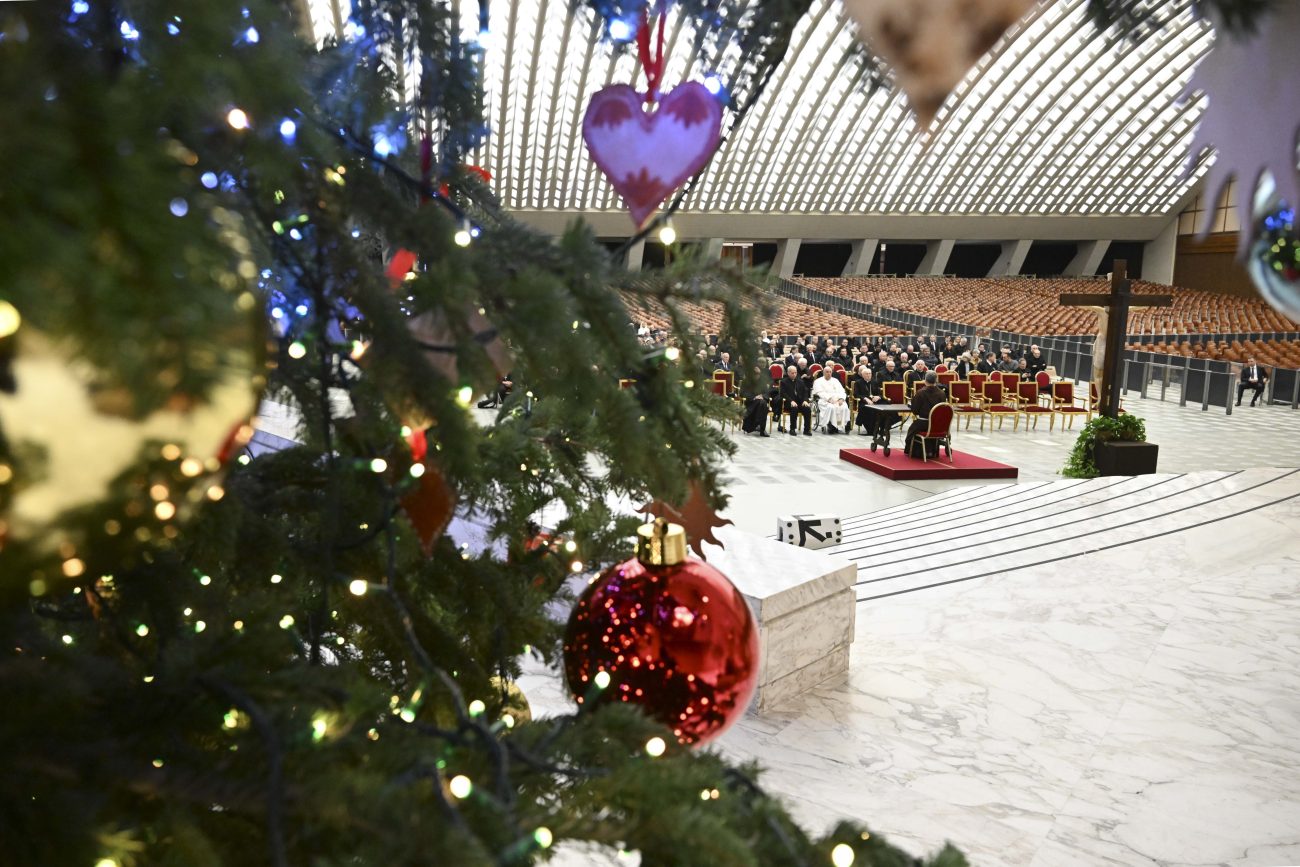VATICAN CITY (CNS) — Courageous trust in God, oneself and others is needed to see the good in one’s life and to be able to embrace a difficult and imperfect world, said the preacher of the papal household.
It is a matter of “adjusting our heart, happy to believe that reality, just as it is, can always be a place of happiness because it is the place where God chose to be with us forever,” Capuchin Father Roberto Pasolini told Pope Francis and members of the Roman Curia in his Advent reflection Dec. 13.
Father Pasolini, 53, was named the papal preacher in November, succeeding Cardinal Raniero Cantalamessa, who, at 90, had served in the role for more four decades.
Father Pasolini began a series of weekly Advent reflections Dec. 6 on biblical prophets “who can point us to the ideal doors (of hope) to walk through for getting ready for Christmas and the upcoming Jubilee, too.”
After reflecting on “the door of wonder” last week, the priest focused on “the door of trust” and having confidence or faith in something.
“It is a courageous choice to trust,” he said, because “it is not a certainty free of risks” and it is not being naive or gullible.
“The Old Testament prophets teach us that trusting means keeping hope alive even in times of trial and desolation,” he said.
God created humanity to be free, and “he respects our freedom,” he said. God is “happy when we use it to become like him, and he respects this freedom even when we turn away and close ourselves off in sin and selfishness.”
“If we turn away from his gaze, though, God cannot turn his gaze away from us. He continues to trust us because he recognizes us as his children capable of returning to him and thus also to ourselves,” Father Pasolini said.
God knows that his trusting gaze is “the thing we need most when we are a little scared, frightened and stuck in life,” he said. “Only trust releases our best resources and allows us to start walking again.”
And, he said, faith in God and caring for others are not separable. “Our faith in God is authentic to the extent that we believe that trust and kindness are never superfluous in our relationships.”
“It is a matter of always finding the time and the way to put ourselves in the other person’s shoes,” he said.
“I think we also need the ability to have such great faith in everything and everyone to generate a virtuous circle of friendship and solidarity,” he said. “This is a very strong reminder for us and our own faith journeys where we often find ourselves to be reserved, distrustful and selfish.”
“The door of trust,” he said, requires “great responsibility. In order to pass through it, it is not enough to show some optimism or perhaps fake it with a few smiles.”
“We need to turn our gaze toward God and open our hearts wide to the action of his Spirit,” he said, because “it is his trust in us that reactivates the best resources we are capable of (giving).”
“Therefore, if we can rediscover trust not only in God but also in ourselves and in others,” he said, “we will know how to see the good around us and then we will also know how to embrace reality” even when it is “uncomfortable, almost repulsive, by trying not simply to seek justice, but by repairing our heart.”
PREVIOUS: Pope: Mary’s Motherhood is the Essence of Guadalupe
NEXT: Nativity Scenes are Reminder of Lord’s Love and Tenderness, Pope Says




Share this story